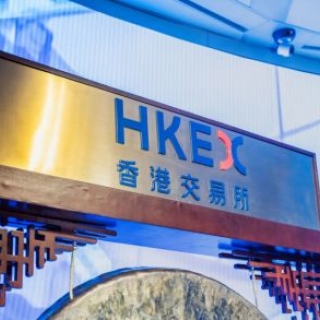


The Hang Seng Index rose 212 points, or 0.8%, to close at 25,317 on Friday (August 22nd), rebounding from the previous session's decline as mainland Chinese markets reached a decade-high on resurgent tech optimism.
The Hang Seng Technology Index surged 2.7% after DeepSeek launched its upgraded AI V3 model on Thursday, boosted by domestic semiconductors as Beijing develops chip self-sufficiency. Consumer stocks also rose sharply on hopes of fresh stimulus from Beijing after signs of a slowdown in Chinese activity in July.
Locally, Hong Kong's annual inflation fell to a four-year low of 1.0% in July, marking the third consecutive month of slowdown. Officials noted that cost pressures in the city remained stable and predicted inflation would remain subdued in the near term.
Stocks that gained included SMIC (9.7%), BYD Electronic (5.9%), Horizon Robotics (4.9%), Kuaishou Tech (4.3%), and Xiaomi Corp. (2.1%). For the week, the index added 0.3%, extending its gains to a third consecutive week. (alg)
Source: Trading Economics
The Hang Seng Index reversed its downward trend in Hong Kong on Thursday (February 12th), weakening by around 0.9% to around 27,000 after a strong session earlier. This decline halted the momentum of ...
The Hang Seng Index extended its rally for the third consecutive day in the latest trading session in Hong Kong on Wednesday (February 11). The index rose 0.3%, or 83.23 points, to close at 27,266.38,...
The Hang Seng continued to strengthen on Tuesday (February 10th), rising 156 points (0.6%) to close at 27,183. This marked a second consecutive day of gains, with most sectors contributing to the mark...
Hong Kong stocks surged on Monday morning. The Hang Seng Index rose 488 points, or around 1.8%, to 27,051, rebounding after weakening in the previous session. Sentiment was also lifted by Wall St...
The Hang Seng Index weakened 1.2% to close at 26,559.95 in Hong Kong trading on Friday (February 6). This decline brought the Hang Seng Index to its lowest closing level since January 20, after a slig...
Oil prices stabilized on Thursday (February 12th), as the market reassigned a risk premium to US-Iran tensions despite US inventory data showing swelling domestic supplies. This movement confirms one thing: geopolitical headlines are still more...
Gold prices weakened slightly on Thursday (February 12th), as more solid US employment data reduced market confidence in an imminent Federal Reserve interest rate cut. The strong employment data prompted market participants to shift expectations of...
The Hang Seng Index reversed its downward trend in Hong Kong on Thursday (February 12th), weakening by around 0.9% to around 27,000 after a strong session earlier. This decline halted the momentum of the short term rally, as investors began to...